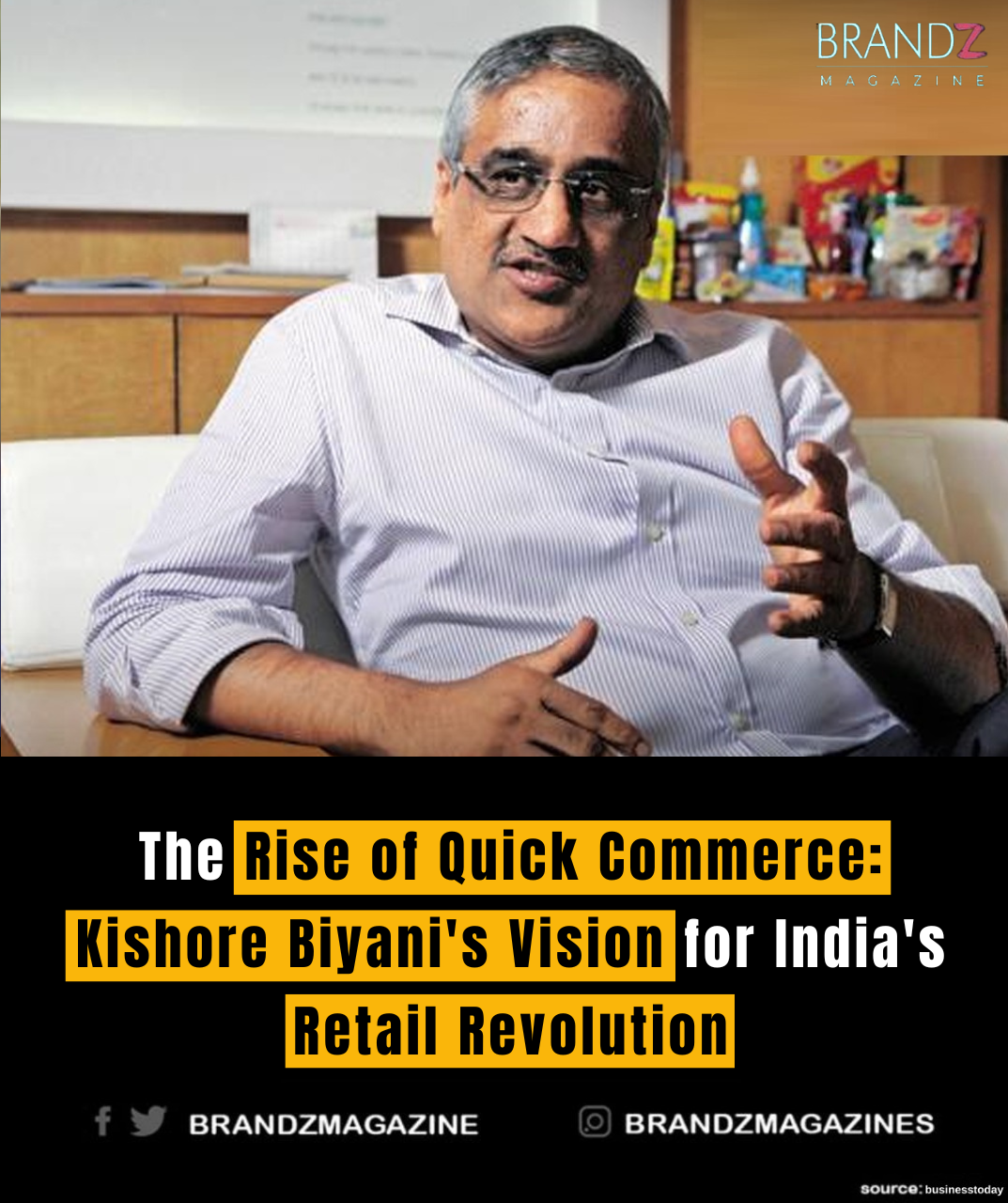
At the fifth edition of #TheD2Csummit2024, organized by Inc42, Kishore Biyani, founder of Future Group, delivered a compelling vision for the future of Indian retail. His focus was on the transformative potential of quick commerce—a burgeoning sector that has rapidly made its mark on the Indian retail landscape. With his extensive background in retail through the Future Group’s chains like Big Bazaar and Food Bazaar, Biyani’s insights carry significant weight.
Biyani emphasized that quick commerce, characterized by ultra-fast delivery times, is poised to redefine the rules of retail. His observations come from a hands-on approach; he has been visiting multiple dark stores—facilities set up specifically for online order fulfillment—and witnessing the industry’s growth firsthand. Despite being a relatively new business model, quick commerce has already demonstrated explosive growth and potential. Biyani predicts that the sector could evolve into a staggering INR 100,000 Crores industry in the foreseeable future.
Quick commerce, also known as q-commerce, is distinct from traditional e-commerce due to its emphasis on delivering goods to consumers in an exceptionally short timeframe, often within minutes. This sector has witnessed an unprecedented acceleration in recent years, particularly in India, where the demand for rapid and convenient delivery solutions is growing.
The current market landscape is dominated by key players such as Zomato’s Blinkit, Zepto, and Swiggy’s Instamart. These companies have established themselves as leaders in the 10-minute delivery space, capitalizing on the increasing consumer desire for instant gratification. In addition to these frontrunners, Flipkart, a major player in the broader e-commerce space, has also recently entered the quick commerce sector, signaling its importance and potential for future growth.
Biyani’s remarks underscore a broader shift in consumer expectations and retail strategies. The convenience of quick commerce aligns with the modern consumer’s need for speed and efficiency. This trend is not merely a fad but a fundamental change in how people approach shopping and delivery. The speed of delivery and the ease of accessing a wide range of products without leaving one’s home are redefining the shopping experience.
The implications of this shift are significant. For traditional retailers, quick commerce represents both a challenge and an opportunity. Retailers must adapt to the changing landscape by integrating faster delivery options into their offerings or risk losing market share to more agile competitors. On the other hand, quick commerce provides a platform for new business models and innovations in logistics, technology, and customer service.
As the quick commerce market continues to expand, it is expected to spur further developments in technology and infrastructure. Investments in dark stores, delivery networks, and logistics solutions will be crucial for sustaining growth and meeting the rising demand for rapid deliveries. Additionally, advancements in artificial intelligence and data analytics will play a pivotal role in optimizing operations and enhancing customer experiences.
In summary, Kishore Biyani’s insights highlight a pivotal moment in the evolution of retail. Quick commerce is not just a trend but a transformative force with the potential to reshape the industry landscape. As the sector grows, it will likely inspire further innovations and strategies to meet the evolving needs of consumers, positioning itself as a cornerstone of the future of retail in India.

